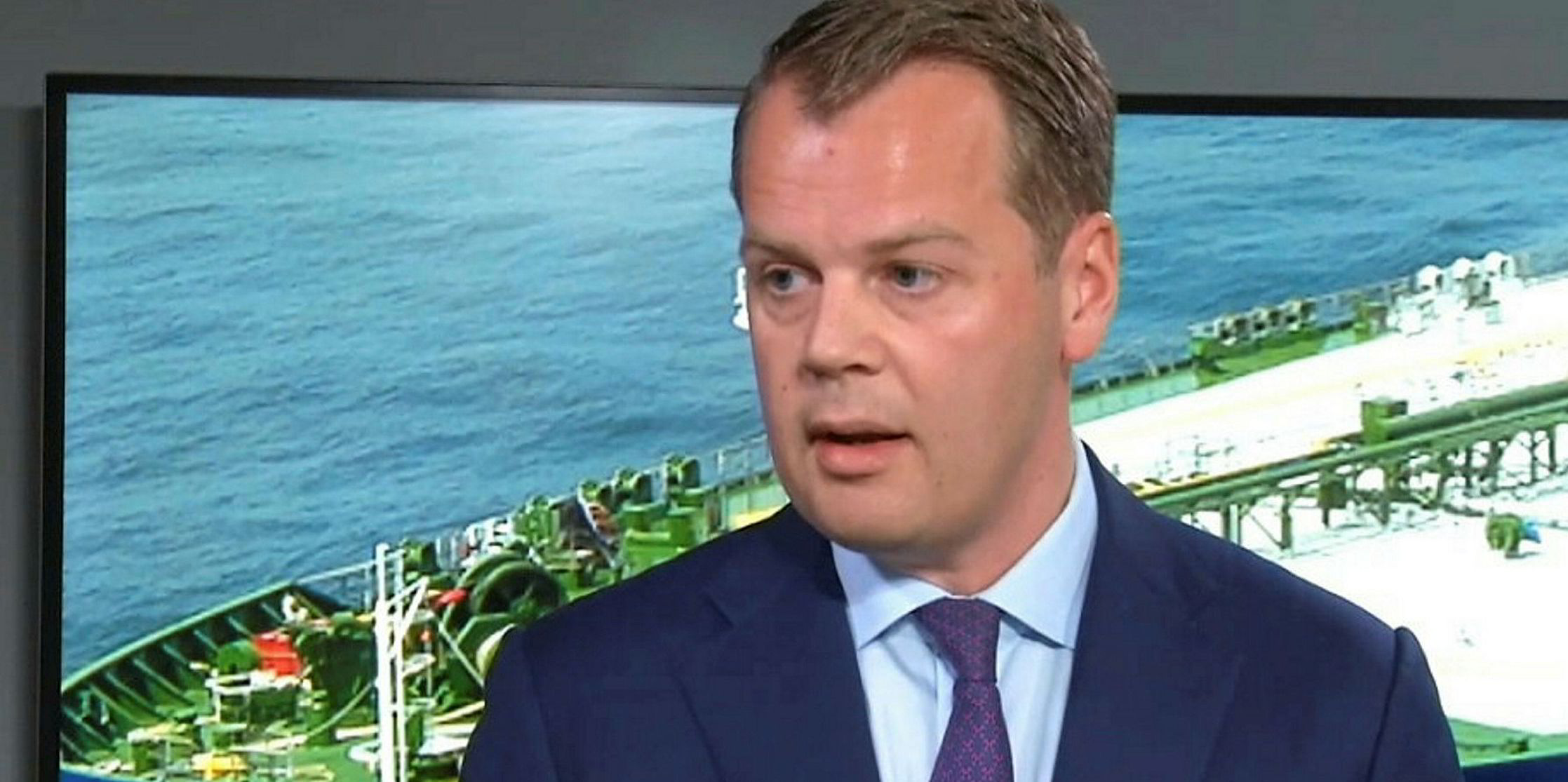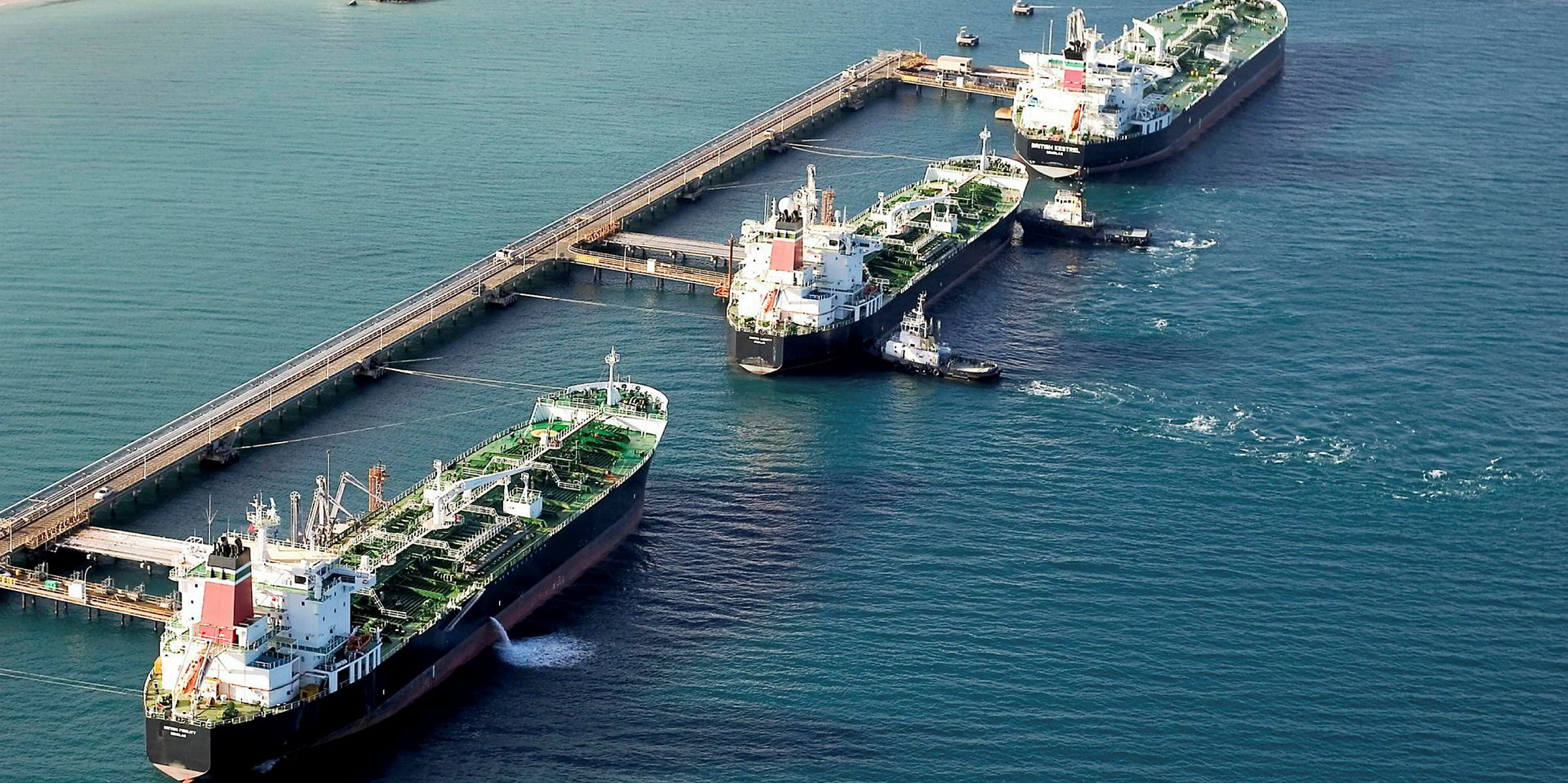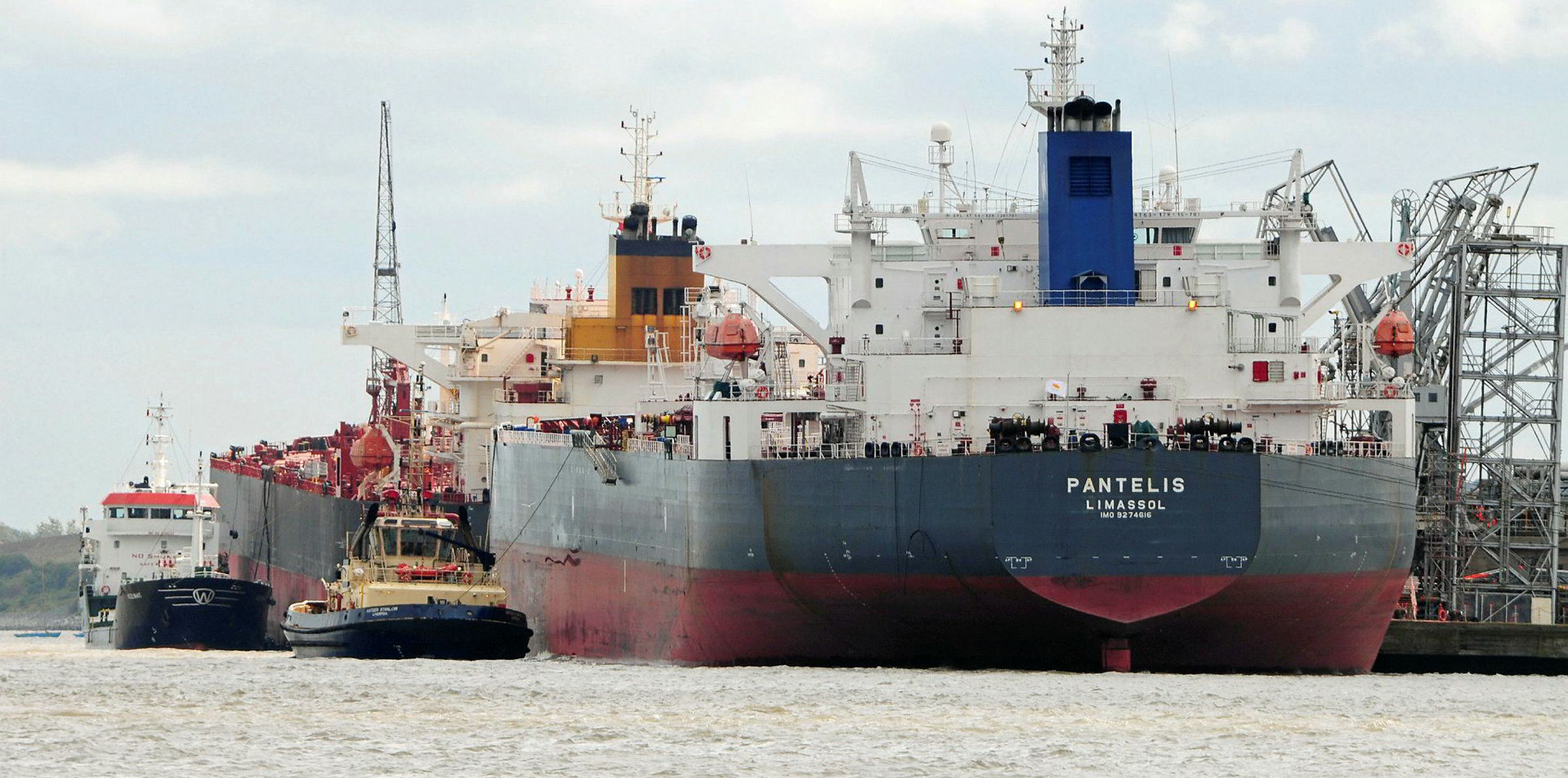The shrinking spread between high-sulphur fuel oil (HSFO) and fuels that comply with the IMO 2020 sulphur cap was laid bare by a number of shipowners last week during an online investment conference.
Executives of Star Bulk Carriers, Dorian LPG and International Seaways all cited narrower premiums for their scrubber-fitted vessels as a result of falling oil prices, although all expressed appreciation for any advantage as hire rates come under pressure from the coronavirus outbreak.
Star Bulk is the king of scrubber installations in dry bulk and one of the first movers in all of shipping. The Greek shipowner has installed the exhaust gas cleaning devices on more than 100 vessels in its fleet.
Little benefit
But the advantages it saw in January when the IMO 2020 sulphur cap initiative kicked in have diminished, executives made clear during a forum sponsored by Value Investor’s Edge and moderated by J Mintzmyer.
“Initially the spread was pretty strong and frankly, pretty much what we expected,” said Star Bulk president Hamish Norton.
“Then with the influence of the coronavirus on demand for gasoline and diesel and jet fuel, basically there was a glut of the products that historically were the most expensive, the spread came in quite sharply.”
Norton estimated the gap at between $110 and $120 a tonne, down from more than $300 a tonne in January. Some recent estimates have been below $100.
“Our scrubbers are quite profitable and and the payback period is a hell of a lot shorter than it is on a ship, but it’s obviously not as good as if the spread were $200 or $250 a tonne,” Norton said.
Initially the spread was pretty strong and frankly, pretty much what we expected. Then with the influence of the coronavirus on demand for gasoline and diesel and jet fuel, basically there was a glut of the products that historically were the most expensive, the spread came in quite sharply.
Hamish Norton
Even at a spread of $110 a tonne, the benefit is “not bad” at close to $5,000 per day on Star Bulk’s capesizes, and between $2,000 and $2,500 a day for medium-sized bulkers, Norton said.
Star Bulk chief executive Petros Pappas in late February had estimated the premium for the owner’s capesize units at $6,500 per day during an earnings call.
Star Bulk’s head of research, Constantinos Simantiras, said the New York-listed owner had been able to sign paper contracts for about 20% of its consumption “at levels way above the $200 mark”.
“Therefore that position is generating profits for us,” Simantiras said. “Once this coronavirus situation comes back to more normal levels, we expect also demand for VLSFO [very low sulphur fuel oil] to increase, and therefore the spread to increase from today’s levels.”
In a separate session, Dorian LPG executives estimated the current premium for its scrubber-equipped VLGC carriers at roughly $5,000 per day in a market yielding index rates of some $45,000 to $50,000 a day.
“That’s kind of a nice little bonus for the time being,” said chief financial officer Ted Young.
Yet it is well below what Dorian LPG had estimated on its 5 February earnings call as a premium of between $10,000 and $20,000 per day.
The LPG carrier owner is fitting scrubbers on 12 of its VLGCs.
A further discussion centred on the potential for Dorian LPG to turn to LPG for propulsion of its vessels not equipped with scrubbers.
Executives said this remains the long-term goal, but in the short-term the prospect has been diminished by the collapse in crude prices and the narrowing in price spreads against LPG.
“Maybe two months ago, it was an easy decision to say, ‘Ah, there is a big nice gap [with] LPG.’ LPG was trading about 200-plus and compliant fuel was trading at 500-plus? There was $300 of difference for every tonne that you consume,” said chief operating officer John Lycouris.
“But right now, this has evaporated. I don’t know if it is even $10 or $20, but it’s very, very small. And that compression of spreads is not going to make any decision possible right now.”
International Seaways chief executive Lois Zabrocky did not discuss the current premium for its fleet of scrubber-fitted VLCCs, but did express confidence that Saudi Arabia’s decision to flood the market with increased production would lower prices for HSFO.
“That should play into lower prices for high-sulphur fuel in the marketplace,” Zabrocky said. “It’s probably a little early still, but a lot of those barrels they have cranked up to get about 12m barrels production are indeed heavy fuel.”








